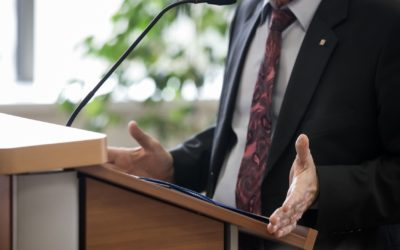#2008-7 © Copyright 2008, all rights reserved worldwide. Gambling and the Law® is a registered trademark of Professor I Nelson Rose, www.GamblingAndTheLaw.com
On April 10, 2008, a Congressional odd couple introduced a bill that would eviscerate the Unlawful Internet Gambling Enforcement Act (“UIGEA”).
Democrat Barney Frank, the first openly gay member of Congress, from Massachusetts, the most liberal and Democratic state, was joined by Ron Paul, from Texas, candidate for the Republican nomination for President. The two are actually not that far apart. They are both libertarians, who believe government should not be messing with individuals’ private affairs.
Their bill, H.R. 5767, is short but to the point:
“The Secretary of the Treasury and the Board of Governors of the Federal Reserve System, whether acting jointly or separately, may not propose, prescribe, or implement any regulation” under the UIGEA, “including the proposed regulations published in the Federal Register on October 4, 2007.”
This would effectively eliminate the legal, if not the practical, impact of the UIGEA. The UIGEA does only two things:
1) It creates a new crime, that of being a gambling business that accepts money for illegal transactions, and
2) It tells Treasury and the Federal Reserve (“the Agencies”) to make regulations requiring financial institutions to identify and block transmissions of money for illegal online gambling.
The first, the new crime, is almost meaningless, since it only applies to Internet operators who are already breaking other federal or state laws. Now, the Frank-Paul bill would eliminate the second, because the Agencies would be barred from issuing any regulations.
Note the specific reference to the October 4, 2007 proposed regs. The Agencies looked at the UIGEA and decided that it was too complicated for the federal government to determine whether transactions were unlawful. So, it put the burden on the banks and credit card companies.
On April 2, 2008, Frank chaired a hearing titled: “Proposed UIGEA Regulations: Burden Without Benefit?” Witness after witness joined the 217 written comments that had been submitted earlier in blasting the proposed regs as unworkable.
Many testified along the lines of, “How do you expect a bank employee to know when a transmission of funds is for illegal gambling, when even the federal government says it does not have the resources to know when an online bet is illegal?”
Banks don’t care about protecting their customers’ right to gambling. But they are very concerned that they could be hit by big fines if they let through a transmission that the government later says they should have blocked.
And banks are mostly concerned with the cost. They called it “an unfunded mandate,” meaning the federal government was requiring them to do something “that will cost the banks billions of dollars” without being reimbursed.
Do Frank and Paul think their bill will become law? Possibly. But the purpose may have been to tell the Agencies that a lot of people are unhappy with the proposed regs. The goal may be to slow things down until after the election. With a new President and Congress, the UIGEA could be undone, or at least amended.
Could the Frank-Paul bill pass? Frank has the powerful position of Chair of the House Financial Services Committee and Paul is a senior member. Online gamblers have very little influence. But banks are powerful political players. And no one, aside from the religious far right, is in favor of the UIGEA.
If it does pass Congress, Pres. George W. Bush is unlikely to veto it. Why would he want to get into a political fight with banks over a complicated issue that he does not care about?
END
© Copyright 2008. Professor I Nelson Rose is recognized as one of the world’s leading experts on gambling law. His latest books, Internet Gaming Law and Gaming Law: Cases and Materials, are available through his website, www.GamblingAndTheLaw.com.





0 Comments